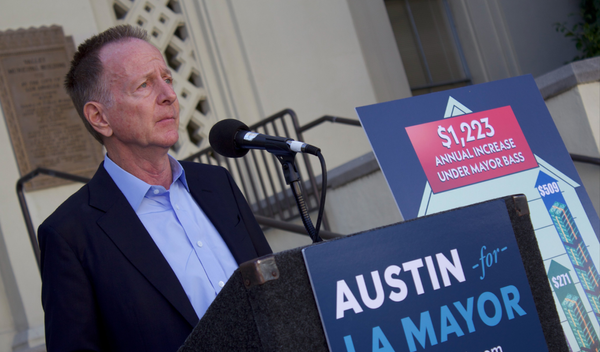
Hollywood superstar George Clooney has added his husky voice to the chorus of Democratic Party-aligned figures more or less begging US President Joe Biden to pull out of the 2024 election race.
Writing in The New York Times, Clooney, a longtime campaigner and fundraiser for the Democrats, said that although he found it “devastating”, “the Joe Biden I was with three weeks ago at the fundraiser was not the Joe ‘big F-ing deal’ Biden of 2010. He wasn’t even the Joe Biden of 2020. He was the same man we all witnessed at the debate.”
Clooney went on to say that the Democrats would not win the presidential election, nor the House of Representatives, nor hold onto the Senate, with Biden on the ticket: “This isn’t only my opinion; this is the opinion of every senator and congress member and governor who I’ve spoken with in private. Every single one, irrespective of what he or she is saying publicly.”
Of course, celebrities deigning to influence politics is a phenomenon as old as our modern concept of celebrity. Here are a few other memorable examples.
Al Jolson
For quite some time, it has been the Democrats who get all the big celebrities, leaving the Republicans to enjoy the vocal support of Ted Nugent and James Woods. But this wasn’t always the case. The first presidential candidate to enjoy celebrity endorsements was Republican Warren G. Harding when running for office in 1920. It was from no less than the world’s biggest star at the time, Al Jolson, whose blackface performances would these days see him shunned everywhere except… well, the Republican Party.
Jolson came out with a jaunty little number called “Harding you’re the man for us“. This was part of a pioneering media strategy that helped Harding, largely considered an undistinguished candidate described variously as “faint” “colourless” and “bloviating”, and who had been a compromise choice in the aftermath of Teddy Roosevelt’s death in 1919, to win in 1920.
Harding died in office in 1923, and thanks to a slew of posthumously revealed scandals, ranks extremely low in the historical estimations of US presidents. This did not prevent staunch Republican Jolson from producing another campaign song in 1924, “Keep cool and keep Coolidge” for Harding’s VP Calvin Coolidge.
Frank Sinatra
Sinatra was prolific campaigner throughout his life in two distinct phases. From the mid-1940s he was a prominent figure in Democratic elections, campaigning for every Democratic candidate starting with adding his name to Franklin Roosevelt’s flyers. Most notorious and consequential was Sinatra’s work with John F Kennedy in 1960. He recorded a version of “High Hopes” which praised the glamorous young candidate and got his buddies in the Rat Pack on board to campaign for him.
But it wasn’t just Democratic fundraisers that Sinatra was heading. It’s widely accepted that Sinatra used his connections with organised crime to help sway the union movement (dominated by the mob at the time) in Kennedy’s favour, securing him the win in 1960. Kennedy rewarded this by snubbing Sinatra and appointing his brother Bobby attorney-general, who dedicated his time in that role to bringing the mob down.
Sinatra’s humiliation may have played some role in his switch the right in the 1970s. He endorsed Richard Nixon in 1972 and by 1980 was donating $4 million dollars to Ronald Reagan’s campaign.
Oprah Winfrey
In a sign of how distant pre-Trump politics feels, try to imagine a celebrity endorsement being treated with the same reverence — and having anything like the reported impact — as Oprah Winfrey’s endorsement of Barack Obama in the lead up to the 2008 presidential election.
As early as 2006, Winfrey was speaking admiringly about Obama, and when he secured the nomination, she was quoted as saying “I’m euphoric, I’ve been doing the happy dance all day. I’m so proud of Barack and Michelle Obama and what this means for all of us … the new possibilities for our country. And if he wants me to, I’m ready to go door to door”.
She was good to her word, addressing crowds in a series campaign events. The New York Times editorial board concluded in August 2008 that “If Barack Obama is elected president, a good chunk of credit should go to Oprah Winfrey”, while oft cited analysis by academics Craig Garthwaite and Tim Moore estimated Oprah’s endorsement netted Obama more than 1 million votes.
It felt of a piece with much of what happened in 2016 that, even with Donald Trump as an opponent, Hillary Clinton was never able to elicit the same kind of enthusiasm.
Should Joe Biden take George Clooney’s advice and drop out of the race? Let us know your thoughts by writing to letters@crikey.com.au. Please include your full name to be considered for publication. We reserve the right to edit for length and clarity.







